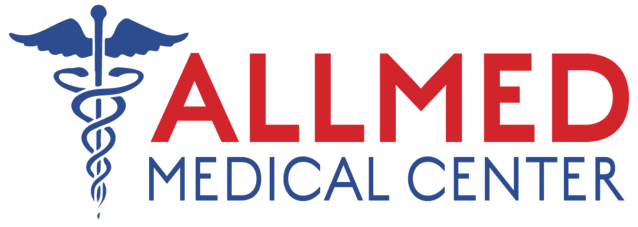
We Proudly Accept Medi-Cal and Medicare
Write your caption hereButton
Now Accepting Walk-ins!
Write your caption here

We Proudly Accept Medi-Cal and Medicare
Write your caption hereButton
Now Accepting Walk-ins!
Write your caption here

Internal Medicine vs. Family Medicine
In medical practice, two prominent fields stand out: internal medicine and family medicine. Each plays a crucial role in healthcare. People often confuse internists with family physicians (and vice versa), but these specialists have distinct characteristics.
This comprehensive guide delves into the critical differences between internal medicine and family medicine, providing a clear understanding of the right doctor for your healthcare needs.
Internal Medicine: Focused Expertise
Definition and Scope
Internal medicine, often called general medicine, is a specialized branch dedicated to preventing, diagnosing, and treating adult diseases. Practitioners in this field, known as internists, possess extensive knowledge of the body's complex systems and can expertly manage various medical conditions.
Subspecialties Within Internal Medicine
- Cardiology
Cardiologists focus on heart-related conditions and diseases, including hypertension, arrhythmias, and coronary artery disease.
- Endocrinology
Endocrinologists address endocrine system disorders, encompassing diabetes, thyroid disorders, and hormonal imbalances.
- Gastroenterology
Gastroenterologists specialize in gastrointestinal tract disorders like irritable bowel syndrome, Crohn's disease, gastroesophageal reflux disease (GERD), and liver diseases.
- Training and Expertise
Internists undergo rigorous training, completing a residency program that spans three years. This extensive education equips them with the proficiency to handle complex medical cases.
Family Medicine: Holistic Care for All Ages
Definition and Scope
Family medicine, often known as general practice, upholds a holistic approach to healthcare. Family practitioners are skilled in treating patients of all ages, and they are adept at managing various medical conditions.
Comprehensive Care
- Pediatric Care
Pediatricians address the unique healthcare needs of infants, children, and adolescents. They mainly perform vaccinations, growth monitoring, and developmental assessments.
- Geriatric Care
Geriatricians focus on the health concerns of older adults, addressing issues like dementia, arthritis, and other age-related diseases.
- Women's Health
Gynecologists provide specialized care for women, including gynecological examinations, family planning, and menopause management.
- Continuity of Care
One of the hallmark features of family medicine is the emphasis on long-term relationships with patients. This continuity of care fosters trust and allows for a more personalized approach to healthcare.
Understanding the Difference Between Internal Medicine and Family Medicine
Choosing between an internal medicine doctor (internist) and a family medicine doctor (family physician) can depend on several factors, including age, medical history, and healthcare needs. If you are an adult, an internist may be more suitable as they specialize in diagnosing and treating adult diseases. If you need comprehensive care for yourself and your family, a family medicine doctor may be a better fit. They provide continuity of care for your entire family.
FAQs
- What age groups do internal medicine and family medicine doctors treat?
Internal medicine doctors primarily treat adults, typically starting in late adolescence and continuing through old age. Family medicine physicians treat individuals of any age, including infants, children, adolescents, adults, and older adults.
- What types of conditions do internal medicine doctors typically handle?
Internal medicine doctors specialize in managing diseases and conditions that affect adults, such as diabetes, heart disease, hypertension, and chronic illnesses.
- What types of conditions do family medicine doctors typically handle?
Family medicine doctors can treat various conditions that affect patients of all ages, including acute illnesses, chronic diseases, mental health issues, and preventive care.
- Can family medicine doctors refer patients to specialists?
Yes, family medicine doctors can refer patients to specialists when needed, depending on the specific medical condition. They coordinate care with other specialists as part of a patient's healthcare journey.
- Do internal medicine doctors perform surgeries?
Internal medicine doctors are not typically surgeons. They focus on non-surgical medical care. However, they may perform specific minor procedures like joint injections.
- Do family medicine doctors perform surgeries?
Family medicine doctors can perform a wide range of procedures, including minor surgeries like skin biopsies, removal of cysts, and suturing wounds. However, they do not typically perform specialized surgeries.
- Can internal medicine doctors provide gynecological care?
Internal medicine doctors are not explicitly trained in gynecology, although they may have some knowledge in this area. For specialized gynecological care, internists refer patients to gynecologists.
- Can family medicine doctors provide prenatal care and deliver babies?
Family medicine doctors can provide prenatal care and attend to normal pregnancies. Some family physicians may also offer obstetrical services and deliver babies.
Find the Right Doctor for Your Healthcare Needs With Us!
If you're searching online for “internal medicine definition” and “family medicine practice" or asking “is internal medicine primary care?”, AllMed Medical Center is your best bet.
Our internists and family physicians specialize in providing you the treatment you deserve. We commit to providing top-of-the-line healthcare services to all our patients based on their needs.
Call us at 1-833-255-6332 or book an appointment
here.
AllMed Medical CentersServing
Greater Sacramento
Allmed Medical Center | All Rights Reserved.










